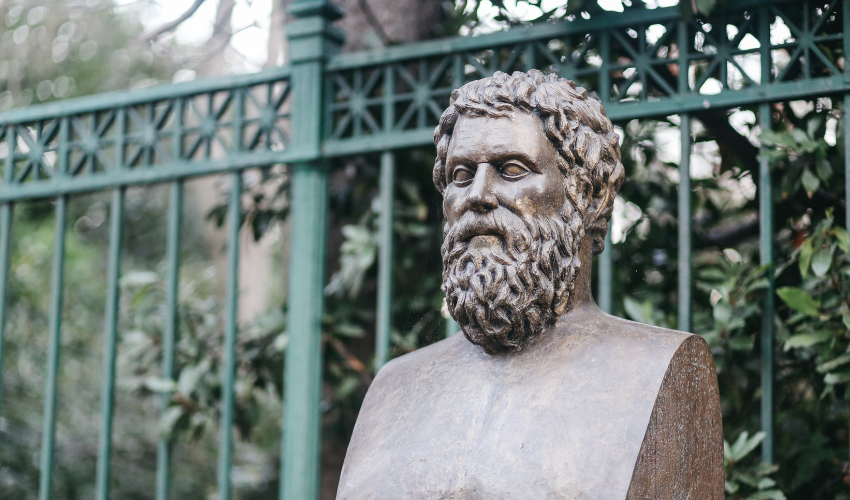Greek literature is one of the most prominent and influential literary traditions in the world. It encompasses a vast array of genres, including epic poetry, drama, philosophy, and history. The Works of Greek literature have played a crucial role in shaping the Western literary canon and have been studied and admired by scholars and readers alike for centuries. In this article, we will take a closer look at some of the most significant works of Greek literature, their themes, and the impact they have had on literature and culture.
Exploring the Genres of Greek Literature
Greek literature encompasses a wide range of genres, including epic poetry, tragedy, comedy, and philosophy. Each genre explores different themes and elements of the human experience.
-
Epic Poetry: The Iliad and The Odyssey
Epic poetry, such as Homer’s Iliad and Odyssey, tells the story of heroic figures and epic battles. These works explore themes of honor, glory, fate, and the complex relationships between humans and the gods. The epic poems of Homer have had a profound impact on literature and culture, shaping the Western literary canon and inspiring writers for centuries.

-
Tragedy: Oedipus Rex and Antigone
Greek tragedy, such as Sophocles’ Oedipus Rex and Euripides’ Medea, explores the darker aspects of the human experience, such as fate, free will, and the individual’s relationship to the state. Tragedy often ends in the downfall of the protagonist, highlighting the futility of human efforts to control their own destiny.

-
Comedy: The Frogs and Lysistrata
Greek comedy, such as Aristophanes’ Lysistrata and The Clouds, focuses on humor and satire, often using absurd situations and exaggerated characters to lampoon social and political issues. Unlike tragedy, comedy ends in resolution and hopeful message and highlighting the potential for change.
-
Philosophy: The Republic and The Symposium
Greek philosophy, particularly the works of Plato, Aristotle, and Socrates, has had a profound impact on Western thought and culture. These works explore ethics, politics, and metaphysics, offering insights into the nature of reality, the human condition, and the role of the individual in society. The influence of Greek philosophy can still be seen in modern Western thought, from the fields of science and technology to art and literature.
Exploring the Themes of Greek Literature
The Works of Greek literature explore a wide range of themes and issues, many of which are still relevant today.
-
Human Nature
Greek literature often explores the nature of humanity, including its flaws, virtues, and potential for greatness. The characters in Greek literature, from epic heroes to tragic figures, are complex and multi-dimensional, reflecting the complexity of the human experience.
-
Fate and Free Will
Greek literature often explores the tension between fate and free will, highlighting the struggle of individuals to control their own destiny. The concept of fate is particularly prominent in Greek tragedy, where characters often face tragic consequences as a result of their actions.
-
Politics and Society
Greek literature often examines the role of the individual in society and the relationship between the individual and the state. Tragedy often deals with political and social issues, highlighting the conflicts and tensions that arise when individuals and communities are in conflict.
Bullet points
- Greek literature dates back to the 8th century BCE and includes a wide range of genres.
- Epic poetry is characterized by long, narrative poems that celebrate heroic deeds and gods and goddesses.
- Tragedy is a genre that explores serious themes, often centered around human suffering and the human condition.
- Comedy is a genre that focuses on humorous and satirical elements.
- Philosophy is a branch of knowledge that deals with the study of existence, reality, and values.
- History is a discipline that examines the past, particularly through written records.
FAQs
Who were some of the most famous Greek poets?
Homer, Hesiod, and Sappho are some of the most famous Greek poets.
What is the significance of The Iliad and The Odyssey in Greek literature?
The Iliad and The Odyssey are among the most celebrated and influential works of Greek literature. They are epic poems that tell the story of the Trojan War and the journey of Odysseus, respectively. They have had a profound impact on Western literature and culture, influencing writers and artists for centuries.
What are some of the key themes of Greek tragedy?
Some of the key themes of Greek tragedy include fate, free will, the human condition, and the relationship between the individual and the state.
How did Greek comedy differ from tragedy?
Greek comedy was characterized by its focus on humor and satire, whereas tragedy dealt with serious themes and explored the darker aspects of the human condition.
What was the impact of Greek philosophy on Western culture?
Greek philosophy has had a significant impact on Western culture, particularly in the fields of ethics, politics, and metaphysics. The works of Greek philosophers such as Plato, Aristotle, and Socrates have shaped Western thought and influenced the development of Western civilization.
Conclusion
The Works of Greek literature have had a lasting impact on literature and culture, shaping the Western literary canon and influencing writers and artists for centuries. From the epic poems of Homer to the philosophical works of Plato, Greek literature encompasses a rich and diverse range of genres and themes. By exploring these works, we can gain a deeper understanding of the human experience and the enduring power of great literature.






















